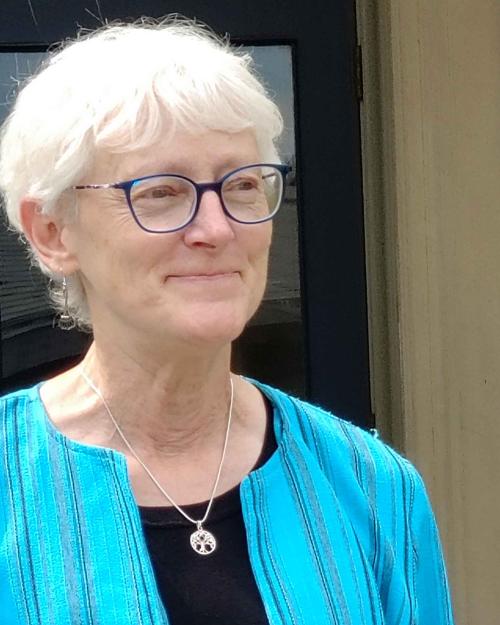This fall, Professor Linda Nicholson took on the position of faculty director of the Office of Undergraduate Biology (OUB) and she has lots of plans for innovative ways to support students in the major.
Nicholson takes over from Professor Cole Gilbert, who served as the Hays and James M. Clark Director of Undergraduate Biology for seven years.
“We’re working to shift the culture within biological sciences from a competitive to a collaborative learning environment,” said Nicholson, a professor of molecular biology and genetics. “The stress that students are under, especially in their first year, is really unnecessary.”
One of Nicholson’s priorities is to help students who come from under-resourced high schools. “We’re losing some amazing and brilliant students who just decide this doesn’t make sense for them and they switch to a different major. They say ‘I haven’t seen this material before and everybody else has, so I’m just going to go do something that feels more comfortable.’ ”
The university already has excellent programs, supplemental courses and supports for students, including OUB’s Biology Scholars Program, she said, but more programs like that are needed. So, the office is adding a new position, focused half time on establishing additional learning communities for core biology courses.
“Having cohorts of students who are learning together, bringing their experiences and understandings into a safe space where they can share their vulnerabilities and challenges, will be the goal,” Nicholson said. Each cohort will be led by an upper-class major and the hope is that the cohort could continue to meet throughout a student’s years at Cornell.
The Office of Undergraduate Biology supports majors from the College of Arts and Sciences and the College of Agriculture and Life Sciences, with 14 concentrations. OUB helps connect students with opportunities in study and research in almost every aspect of the biological sciences, and the office also sponsors a variety of summer and academic year workshops, seminars and special events for students with interests in life science research.
The office is focusing on strategic planning in areas that include new approaches to increase the number of undergrads doing research, such as course-based undergraduate research experiences (CUREs), and increased visibility for climate change research that is happening on campus.
“The world is in trouble and biology is one of the sciences that can make a difference moving forward,” she said. “There’s so much research going on here about sustainability and climate change and how to adapt to climate change. I’d like to highlight that work, find out what’s going on in departments and generate some hope and positivity.”
Nicholson said her mission is to empower students and give them confidence to realize that the tools they are acquiring will enable them to make a difference in the world.
“I feel very blessed to be in this position,” she said. “I feel like it’s a gift.”




